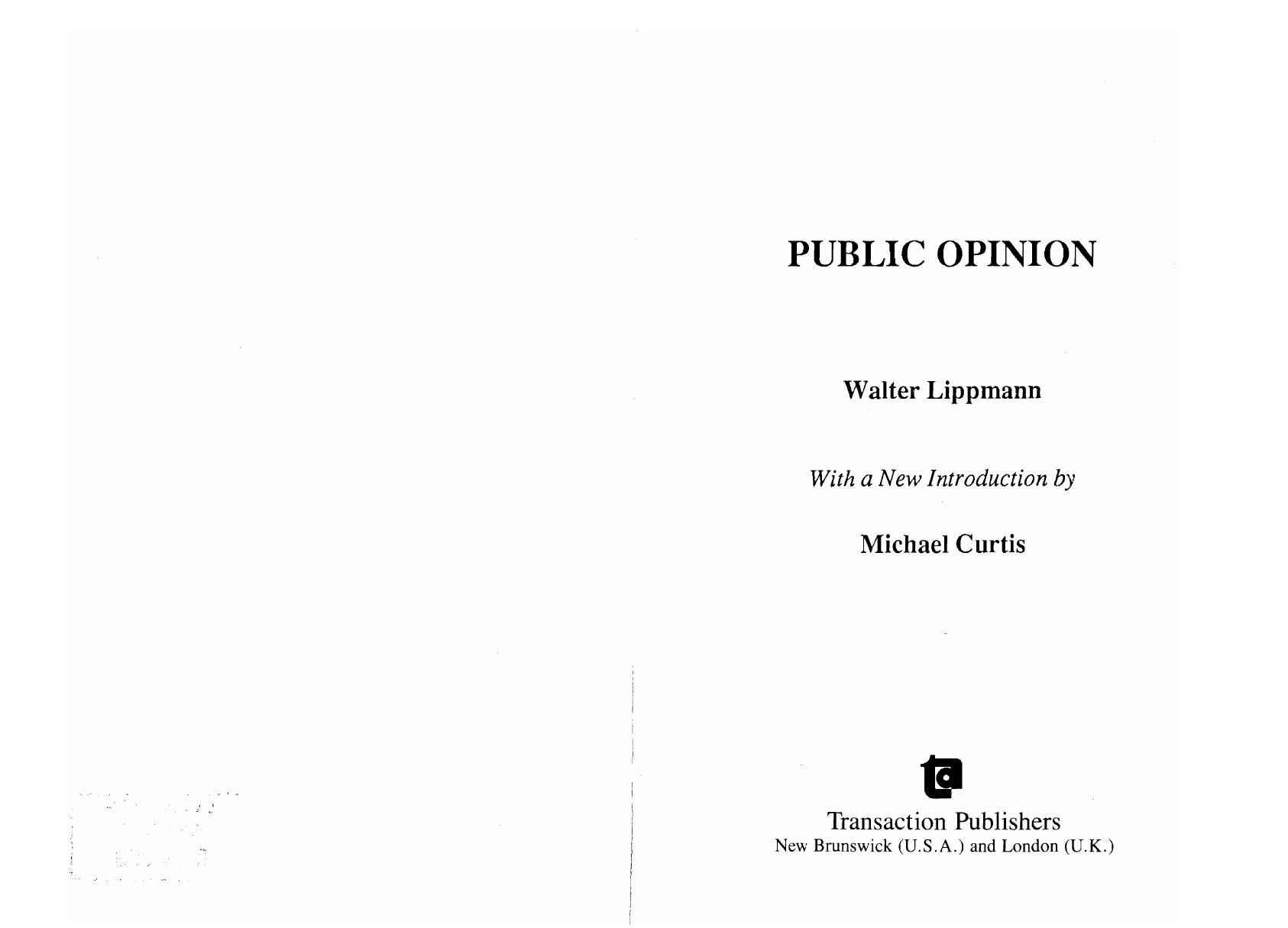Public Opinion by Walter Lippmann

Author:Walter Lippmann [Lippmann, Walter]
Language: eng
Format: epub, pdf
Tags: Politics
Publisher: http://c3jemx2ube5v5zpg.onion
Published: 1922-03-14T16:00:00+00:00
4
The tremendous consequences of Russia's collapse were felt on all the fronts and among all the peoples. They led directly to a striking experiment in the crystallization of a common opinion out of the varieties of opinion churned up by the war. The Fourteen Points were addressed to all the governments, allied, enemy, neutral, and to all the peoples. They were an attempt to knit together the chief imponderables of a world war. Necessarily this was a new departure, because this was the first great war in which all the deciding elements of mankind could be brought to think about the same ideas, or at least about the same names for ideas, simultaneously. Without cable, radio, telegraph, and daily press, the experiment of the Fourteen Points would have been impossible. It was an attempt to exploit the modern machinery of communication to start the return to a
âcommon consciousnessâ throughout the world.
But first we must examine some of the circumstances as they presented themselves at the end of 1917. For in the form which the document finally assumed, all these considerations are somehow represented. During the summer and autumn a series of events had occurred which profoundly affected the temper of the people and the course of the war. In July the Russians had made a last offensive, had been disastrously beaten, and the process of demoralization which led to the Bolshevik revolution of November had begun. Somewhat earlier the French had suffered a severe and almost disastrous defeat in Champagne which produced mutinies in the army and a defeatist agitation among the civilians. England was suffering from the effects of the submarine raids, from the terrible losses of the Flanders battles, and in November at Cambrai the British armies met a reverse that appalled the troops at the front and the leaders at home. Extreme war weariness pervaded the whole of western Europe.
In effect, the agony and disappointment had jarred loose men's concentration on the accepted version of the war. Their interests were no longer held by the ordinary official pronouncements, and their attention began to wander, fixing now upon their own suffering, now upon their party and class purposes, now upon general resentments against the governments. That more or less perfect organization of perception by official propaganda, of interest and attention by the stimuli of hope, fear, and hatred, which is called morale, was by way of breaking down. The minds of men everywhere began to search for new attachments that promised relief.
Suddenly they beheld a tremendous drama. On the Eastern front there was a Christmas truce, an end of slaughter, an end of noise, a promise of peace. At Brest-Litovsk the dream of all simple people had come to life: it was possible to negotiate, there was some other way to end the ordeal than by matching lives with the enemy. Timidly, but with rapt attention, people began to turn to the East. Why not, they asked? What is it all for? Do the politicians know what they
Download
This site does not store any files on its server. We only index and link to content provided by other sites. Please contact the content providers to delete copyright contents if any and email us, we'll remove relevant links or contents immediately.
Blood and Oil by Bradley Hope(1253)
Daniel Holmes: A Memoir From Malta's Prison: From a cage, on a rock, in a puddle... by Daniel Holmes(1120)
Ambition and Desire: The Dangerous Life of Josephine Bonaparte by Kate Williams(1088)
Wandering in Strange Lands by Morgan Jerkins(1019)
It Was All a Lie by Stuart Stevens;(944)
What Really Happened: The Death of Hitler by Robert J. Hutchinson(875)
London in the Twentieth Century by Jerry White(850)
Time of the Magicians by Wolfram Eilenberger(846)
Twilight of the Gods by Ian W. Toll(815)
The First Conspiracy by Brad Meltzer & Josh Mensch(814)
The Japanese by Christopher Harding(804)
A Woman by Sibilla Aleramo(798)
Lenin: A Biography by Robert Service(782)
The Devil You Know by Charles M. Blow(781)
Reading for Life by Philip Davis(777)
Cleopatra by Alberto Angela(771)
Twelve Caesars by Mary Beard(770)
1965--The Most Revolutionary Year in Music by Andrew Grant Jackson(717)
The Life of William Faulkner by Carl Rollyson(716)
